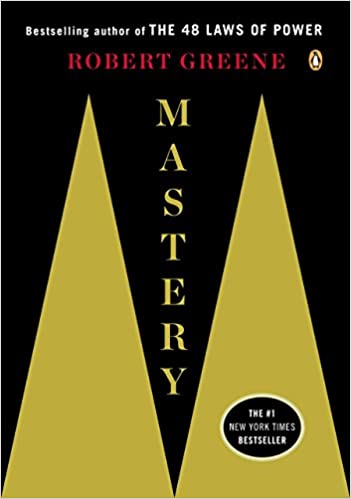Is there a secret to unlocking how to learn things faster, how to retain information better, and how to master your career? This is how you can “boss” up in all of these aspects. And it is way simpler than you can imagine.
Today, we’re going to teach you how to learn faster, remember more, and become a master of your profession. From old-fashioned tricks to valuable advice that famous businessmen, women, athletes, and singers apply, let’s get started!

Mastery
by Robert Greene
⏱ 14 minutes reading time
🎧 Audio version available
Take Notes
The number one most important piece of advice you can receive concerning learning faster and remembering more? It’s an old-school trick.
Take notes. Do the whole shebang: pen, paper, markers, highlighter– only your imagination and budget limit you in this part. When you’re in school or at work, it may make sense to type your notes or thoughts on a laptop.
While this seems more efficient, this absolutely will not help you learn faster. Our brains don’t work like that.
If you want to speed up the process, leave the laptop at home and take notes the old-fashioned way. Studies showed that those who type their notes during lectures could process and retain information at a lower level than those who chose to take notes by hand. The other group learned more.
Yes, it’s slower, and it may be more inconvenient, but the actual act of writing out your thoughts and the information you’re receiving results in deeper comprehension and retention. When you write out the information in your own words, essentially reframing them, your mind can retain the knowledge more. The next you’re tested on your knowledge, you’ll already have a well of information locked inside your brain.
Now, how can you be a more efficient note-taker? This thing is about speed, after all.
The better and more organized your notes are, the more you’ll remember them and the faster you’ll learn. When you have thorough notes, you’ll end up developing meaningful learning skills.
The next you’re learning a new subject, whether in class, lecture, work seminar, try this. There are several strategies for note-taking, but one of the most popular is the Cornell Method.
The Cornell Method helps you by making you organize your notes into easy-to-remember summaries. And each week, for just 10 minutes, you review your work.
All in all, it’s important to remember a few basic awesome tricks! Write notes in your own words; leave some space between your main ideas so that you can add more information later; write in phrases, not complete sentences; have a system of symbols and abbreviations to save up on times, and lastly, learn which information is more important to ignore time-wasting, trivial stuff.
Study and Sleep
This is the one consistent piece of advice that applies to all three of our goals for today. In order to learn faster, remember more, and learn how to master your profession, studying combined with sleeping is the magic combo.
Let’s say there is a big presentation or proposal tomorrow, and you’re unprepared. In this situation, most people will stay up most of the night, trying to cram all the information just before the presentation. They believe that their last-minute but still hard work will be rewarded, even if they’re falling on their feet the next day.
This idea may have some merit to it, but it’s the least efficient way to process information. And if you want to become a master of your profession, being unprepared is a major step back.
Sleep and learning have a powerful connection. Getting some quality sleep boosts your brain’s ability to remember things. And deep sleep? The one where you’re so deeply in dreamland that it’s called non-rapid eye movement? It can even strengthen memories if it occurs within 12 hours of learning that new thing. And you know what else? People who both study and sleep and sufficient amount of time? They not only perform better professionally, but they’re also happier in their lives.
Learn From the Best
Why start at nothing when you can be learning from the best? This advice applies towards learning faster and teaching you how to master your career.
Every idol you have, every wildly successful person who clambered up the steps of the business world, all share one thing in common. They wanted to be the best in their fields. And how did they achieve that? They learned that they needed to work harder than the current bests in their fields.
They mastered their skills and didn’t stop there. They kept working on them until they perfected– and they never stopped doing this. To do this, you need decomposing determination. If you want to be the best, you need to think like the best, work like the best, and start winning like the best.
It wasn’t a coincidence that people like Elon Musk, Jeff Bezos, Beyoncé, Pele, Tiger Woods, Michael Jordan reached astronomical success and accumulated a fortune while doing so. Their success and wealth are a result of their determination, discipline, and openness to learning more.
Qualities You Need to Have
Next up, we want to discuss some crucial qualities you need to master your profession and transform your way of thinking.
In the business world– in any world, the first thing you need to do to find success is to find an expert to follow and to apprentice to.
Whatever field you’re in for sure has a master, one that you can apprentice with and learn skills from.
Next, you need to be observant. Want to take in information faster than anyone else in the room? Be observant of what’s around you. Always be on the lookout for new knowledge, strategies, techniques, and methods in your field. If you keep your eyes and ears open, you’ll find all the tricks and secrets you may not have been privy to before.
Cultivating your mind is beyond important. Your mind should be a well-oiled machine that’s well trained. How can you do that? Meditation is the most cost-efficient and least time-consuming way to cultivate your mind.
It trains your mind, fosters creativity, and makes it open to learning and remembering more.
Becoming a master in your chosen field takes a lot of hard work, perfecting your skills, and this integral tip: avoid arrogance. You may be on your way to being the best your profession has ever seen, but no one will accept you if you’re arrogant. It will just work to alienate you from your peers.
Feedback Loop
An effective feedback loop will guarantee that you learn faster and become better at your chosen career.
Feedback is receiving information about your performance every time you attempt something or try a new skill or task at work. Feedback is how you know what you need to improve upon, know what’s wrong, and know what’s right.
So what’s a feedback loop?
There are three stages to a Feedback Loop; the first stage is related to practicing and applying. This is the stage that requires action. Start practicing what you want to learn.
The next stage is receiving information about your performance.
Unfortunately, this is the most ignored stage. People either feel offended at receiving feedback, or the entire process is done ineffectively. The last stage– the most important one– is where you play the important part: you analyze your feedback, how well you performed, and start making adjustments to improve. The Feedback Loop starts again.
It’s important to recognize this loop and put it in place each time you practice a new skill, study something new, and start a new task at work.
Once you successfully have a smooth loop, you will find that you’re on a steady, speedy path to progress and upgrading your understanding of what you’re learning.
Related: How to Learn Faster and Remember More without Spending Hours Behind Books
How to Be Efficient
Related to feedback, speed and efficiency are some of the most important things you need to have a grip on. How can you be more efficient in learning something new, even if it’s incredibly hard?
You only need to do one thing: break everything down. Take this information, skill, or task, and break it down into different components. You can divide it into steps, processes, sub-skills, whatever makes it easily digestible.
Let’s say what you want to learn is something that involves a sequence, a step-by-step process. Then tackle each step alone. You can even create a Feedback Loop for each step instead of evaluating the entire process. Divide the process into different steps and focus on each individually.
Now, you’re learning faster, you’re remembering more, and you’re a master of your profession.
What Is Snapreads?

With the Snapreads app, you get the key insights from the best nonfiction books in minutes, not hours or days. Our experts transform these books into quick, memorable, easy-to-understand insights you can read when you have the time or listen to them on the go.


